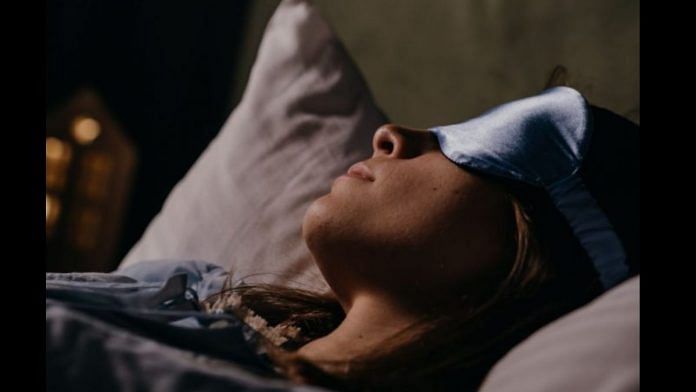New Delhi: A survey conducted by a community-based social media platform, LocalCircles, found that sleep deprivation was on the rise in India, with 61 percent of citizens reporting fewer than six hours of uninterrupted night sleep in the past year — marking a 6 percent uptick from the previous year.
The ‘How India Sleeps’ survey report, released Thursday, garnered responses from 41,000 individuals from 309 districts over the past 12 months.
Of the total respondents, 66 percent were men and 34 percent were women. According to geographic distribution, 41 percent of the respondents belonged to tier 1 cities, 24 percent to tier 2, and 35 percent belonged to smaller cities (tier 3 and 4) and rural areas.
The leading cause of sleep disruption was identified as nocturnal bathroom visits, followed by disturbances by calls/messages, uncomfortable mattresses, and interruptions by children or partners.
Further analysis revealed that 23 percent of respondents struggled to get even four hours of uninterrupted sleep, while 28 percent managed to get between six and eight hours of sleep. Only 6 percent and 5 percent of the participants reported getting 8-10 hours and over 10 hours of sleep, respectively.
According to a 2019 study conducted by US-based Fitbit across 18 countries, Indians are the second-most sleep-deprived globally, second only to Japan.
Studies by the National Institute of Health have linked inadequate sleep (less than seven hours) to obesity, diabetes, cardiovascular disease, hypertension, anxiety, depression, and alcohol abuse in both children and adults.
Dr Soni Jaiswal, clinical psychologist and assistant professor at the Department of Psychology at Gargi College, University of Delhi, often comes across patients who have sleeping disorders.
“Sleep deprivation directly impacts all your cognitive actions and decreases your concentration, memory, and attention span. Various studies suggest that it leads to depression, anxiety, low confidence, hypertension, obesity, and heart disease. It also leads to feeling lethargic during the daytime,” she told ThePrint.
She highlighted that insomnia is more prevalent in youngsters, especially college-going students, than any other age bracket.
Also Read: 61% parents say their child spends at least 3 hours online everyday, says Local Circles survey
Impact of Covid on sleep
The Covid-19 pandemic has also played a role in affecting sleep patterns, highlighted the study, adding that 26 percent of respondents said that their sleep quality had deteriorated since the onset of the pandemic.
However, a majority (59 percent) reported no change in their sleep quality during this period, it added.
Researchers at the Centre for Consciousness Studies, Department of Neurophysiology, National Institute of Mental Health and Neurosciences (Nimhans), Bengaluru, discovered in a 2020 report that one-third of Indians suffer from severe insomnia, which includes difficulty falling or staying asleep, waking up tired, and excessive sleep.
According to Nimhans’ research, the pandemic made these symptoms worse. Those with persistent Covid-19 symptoms may have anxiety-related insomnia and sleeplessness, it added.
Jaiswal agreed that she noticed an increase in the number of patients complaining about sleep deprivation or poor quality of sleep post the pandemic. “Covid has increased the screen time of people by many folds. Their sole source of entertainment has become social media scrolling, which in the long run has impacted their sleep cycles,” she said.
Health concerns and recommendations
Deteriorating sleep quality — for the third consecutive time since 2022 — is a cause for concern, said the LocalCircles report.
According to Jaiswal, the first step towards curbing poor quality of sleep is to accept and be aware of your sleep timings. She emphasised that you should try to maintain a sleeping log and keep a check on screen timings.
To address these issues, health experts recommend a variety of lifestyle changes, including regular exercise, such as walking or yoga, maintaining a consistent sleep schedule, and avoiding screen time before bed.
These measures, when combined with a healthy diet and a calm bedtime routine, can significantly improve sleep quality and overall health, they said, adding that good quality of sleep is a basic mantra to a healthy body.
Jaiswal also recommended reducing liquid intake after sunset and keeping a check on caffeine intake.
“Having a warm glass of milk before an hour to bed is an age-old remedy. Food items like dates help in sound sleep. In addition, people who practice substance use should regulate intake of alcohol and cigarettes,” she added.
(Edited by Richa Mishra)



